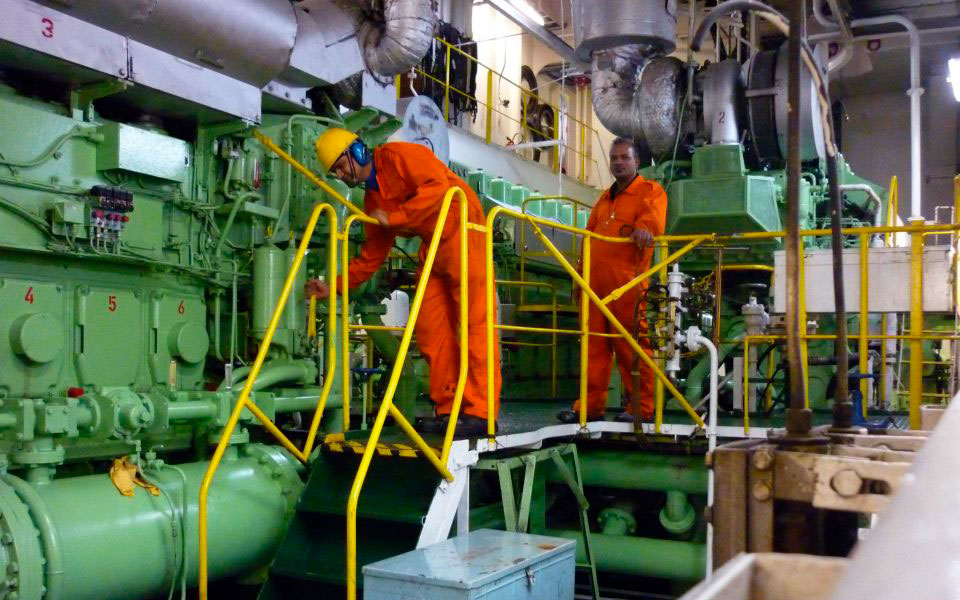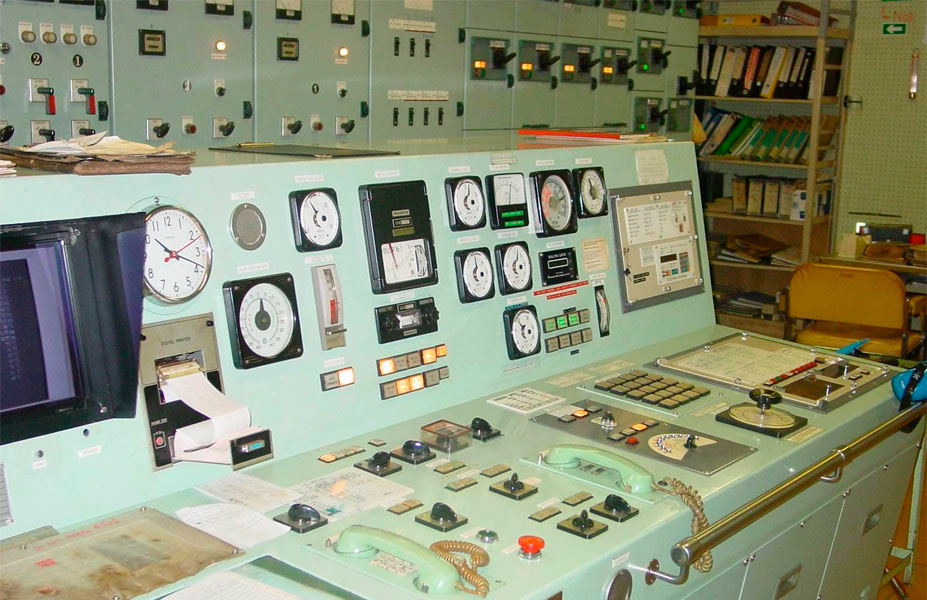
A lot of maintenance work can be reduced by following an efficient watchkeeping routine in the ship’s engine room. Serious accidents can also be avoided from taking place if the engine room crew follows proper watchkeeping procedures.
Though there is no ultimate yardstick to measure the efficiency of a watchkeeping procedure, following are important ways which will help marine engineers on board ships to master watchkeeping.
1. Knowledge is the Base: The first and most important step to enhance your efficiency during a watch is to have a very strong knowledge base. One must know the basics of the machines and their operations, new trends and upcoming technologies, and maritime regulations along with their amendments.
Engine room operations also require information from other domains of engineering such as mechanical, hydraulic, pneumatic, electrical and electronic systems, refrigeration etc. Knowing these fundamentals makes an engineer’s knowledge foundation stronger.
2. Follow Your Instincts: It is commonly said on ships that in order to become a good watch keeper, an engineer must use all the 6 senses- i.e. touch, hearing, smell, visuals, taste and kinaesthetic senses (6th Sense).
All these senses when applied correctly can help an engineer to understand the condition of machines in a better way.
Touch: Feeling a machine for its temperature can tell you about the condition inside the machinery, for e.g. High temperature means something is wrong inside.
Hearing: It is always advisable to keep a track of sounds coming from different machines in the engine room as any abnormality would result in gradual or drastic change in the operating sound.
Smell: Another powerful sense that helps to determine a problem is - smell. Burning of parts or accessories due to increase in temperature, oil leakage, chemicals etc. can be easily identified using this sense.
Taste: Your tongue can identify different tastes; and you can apply this characteristic to your watchkeeping routines, for e.g. tasting can help to identify the difference between sea water and fresh water as both of them are used as prime mediums for cooling on ships.
Visual: The most commonly used sense of all is the power of visualization, which is helpful in identifying engine room and machinery conditions. Whenever you enter the engine room you must start looking for any kind of visual abnormality.
6th Sense: Considered to be the most powerful of all senses, your inner feeling (gut feeling) can sometimes prove to be a lifesaver during watchkeeping. Listen to it when you feel there is something wrong in the engine room. However, don’t rely on it blindly; back it up with proper procedures.
3. Go By The Book: Every Engine room is provided with hundreds of documents – manuals, operating instruction, and safety and pollution prevention instructions just to name a few. Follow them religiously during your watchkeeping procedures.
4. Interpreting log book: A smart engineer would know the importance of engine room log book and would also know how to interpret previous readings of different machines from the same. Interpreting log book means keeping a track of previous records of machinery parameters from the log book and using them to analyze the present situation or to identify a problem.
5. Clear Communication: Efficient communication between maritime professionals is an important factor for a safe and smooth operation onboard.
As a watchkeeping officer, you must clearly communicate all kinds of operations and problems/ suspicions with your seniors and crew members.
An efficient engine room-bridge communication is also very important to make sure that navigational officers at the bridge can plan their procedures or stay prepared for any kind of situation.
6. Take a Complete Round, Don’t Skip Any Machinery/Space: Automation and alarm systems of machines are always helpful in detecting early stage faults; however, it is a known fact that human vigilance is more capable of detecting and interpreting errors more accurately.
When on engine room round, all machines on all levels must be examined for proper operation. Moreover, also make sure that you note your findings in the log book for future reference.
7. Never Neglect Any Alarm: Alarm systems in the engine room are indication or pre-warning of any abnormality in the engine room machines. Sometimes due to a technical glitch such as connection or electronic fault, an alarm would become faulty and gives out audio and visual warnings after every few minutes.

This generates a habit among watch keepers to ignore the alarm totally and to cancel it from the control room.
However, make sure that you are able to differentiate between the faulty and normal alarm, and also keep a track on the repairing work of faulty alarm so that you are aware when it is back to normal condition.
8. Do Not Hide Faults: If you see any kind of fault while taking rounds or have committed a mistake, never try to hide it. Remember that even the smallest fault can become dangerous if unattended at the correct time. Always report the incident to your superiors and try to remove or repair the fault as soon as possible.
9. Call for Help When in Need: In an engine room having hundreds of machines, faults are bound to happen. Sometimes you may feel that the fault is big and a single person won’t be able to handle it alone. In such situations, don’t hesitate to ask for help. Ship operation is all about team work and you should respect that and know its importance.
10. Obey Orders: A good watch keeper must follow eligible orders from seniors, who have better experience and understanding of machines. However, a smart watch keeper should also use his/her own judgment when the need arises. Take inputs and advices from your seniors, but be confident while carrying out your duties.
11. Follow Alcohol Policy: Never ever commence or carry out your watch under the influence of alcohol, as it may interfere with your decision making abilities. Always follow your company alcohol policy. In case you are under influence of alcohol, don’t be ashamed to inform your seniors.
12. Avoid Fatigue: Fatigue is the biggest reason behind human mistakes on ship. Always take proper rest in your free time and avoid working when tired. Though this is tough to follow most of the time, ask your seniors for a brief break so that you can freshen up and get back to work with more energy and enthusiasm.
References
A Pocket Guide To Engine Room Watchkeeping on Ships - Anish Wankhede [2013]